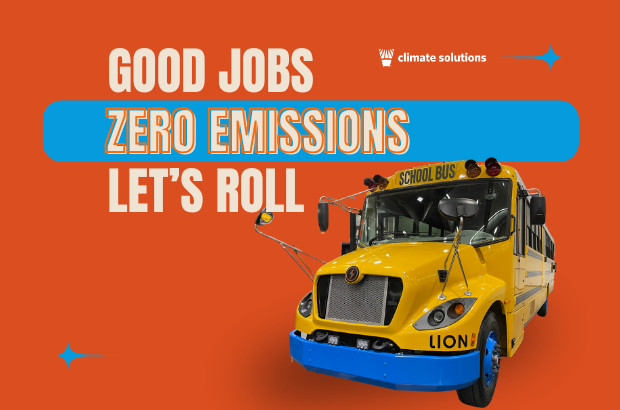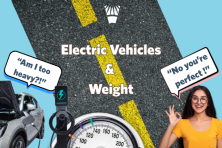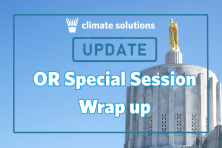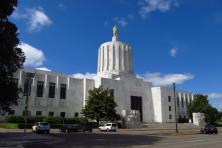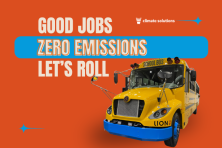Everyday necessities shouldn’t come with everyday pollution. Yet the goods and resources we rely on are delivered by a freight system powered largely by diesel. This is bringing toxic emissions into our neighborhoods, schools, and lungs. Diesel pollution is not just an environmental issue, it’s a public health crisis, especially for children.
In the aftermath of COVID-19, we've learned just how vulnerable our lungs and our communities are. Respiratory illnesses are on the rise, and air pollution makes them worse. The evidence is overwhelming: diesel exhaust increases the risk of asthma, heart disease, cancer, and premature death. The American Lung Association recently gave most Oregon counties a failing grade for air quality. Living near a busy freeway or working in a high-diesel environment can expose someone to the equivalent of smoking several cigarettes (or even a full pack) every day.
We go to great lengths to protect our kids’ health. From the food they eat, the safety measures we put in place, to the sleep they get. Shouldn't we treat the air they breathe with the same priority and urgency?
The Oregon legislature’s 2025 transportation package provides a critical opportunity to invest in programs designed to protect children's health and benefit all Oregonians. These programs work together to accelerate our transition to clean transportation, dramatically improving air quality, creating jobs in our local economy, and decreasing transportation costs:
- Electric School Bus Program ($23 million): Protecting children directly from harmful diesel emissions every time they ride to school helps save school districts money in fuel costs.
- Medium- and Heavy-Duty Zero-Emission Vehicle Rebates ($60 million): Helping Oregon businesses switch from polluting diesel trucks to cleaner, safer alternatives, creating local jobs, and reducing diesel pollution.
- Community Charging Grants ($30 million): Ensuring equitable access to electric vehicle infrastructure, particularly for disadvantaged and rural communities, making cleaner transportation a reality for everyone.
- Zero Emission Fueling Grants ($20 million): Expanding the critical infrastructure for electric trucks and buses, further cutting freight pollution across Oregon.
- Electric Vehicle Rebate Program ($12 million): Ensuring that low- and moderate-income families can afford electric cars, save money on gas and repairs, and breathe healthier air, especially when combined with HB 3597, will focus state dollars on programs designed to benefit people with lower incomes.
Big oil companies, some truck manufacturers, their allies in Congress, and the legislature are lobbying to reverse this progress by rolling back clean air regulations. One of the most important things state lawmakers can do to defend Oregon's values, climate, and progress on clean air is by investing in electrification and climate solutions. More than half of Oregon’s counties face dangerous levels of diesel pollution linked directly to cancer risks. Tens of thousands of Oregon’s children breathe unhealthy air every day.
Here are the facts: We have the technology and momentum; now we need the political will. It's time for our legislators to prioritize public health and clean air over corporate profits.
